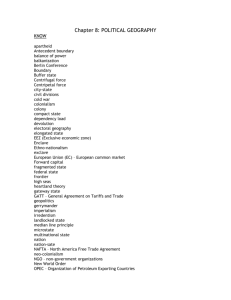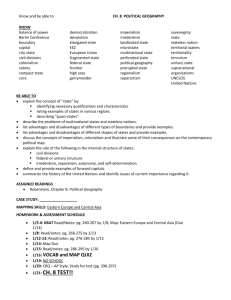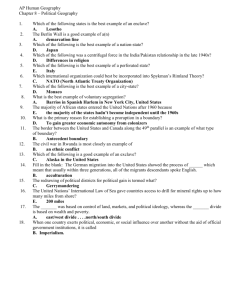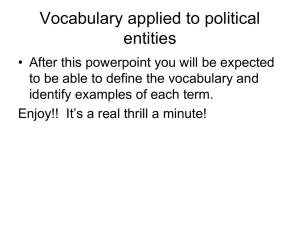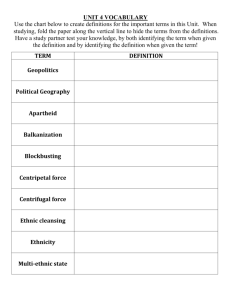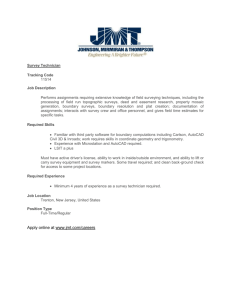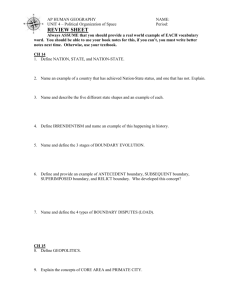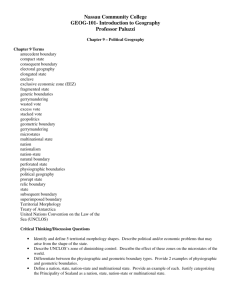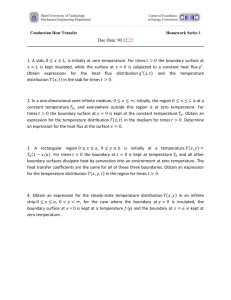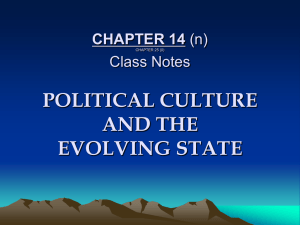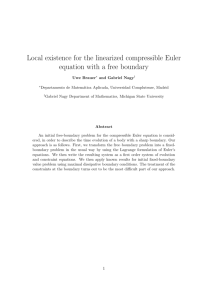KBAT Political Geography
advertisement
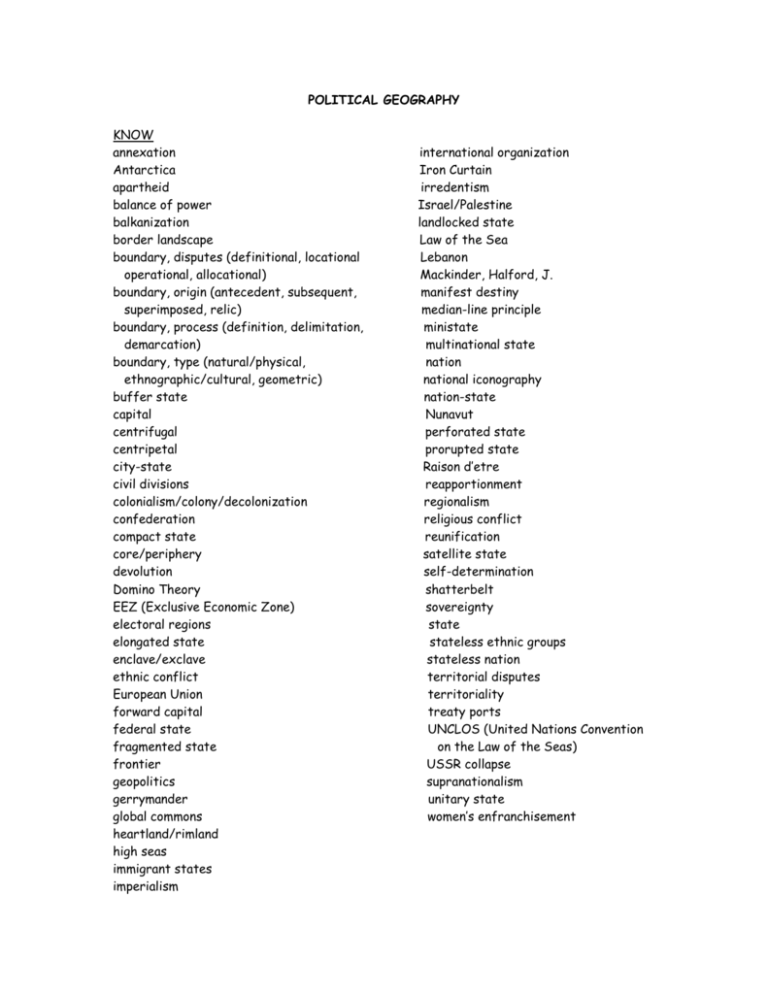
POLITICAL GEOGRAPHY KNOW annexation Antarctica apartheid balance of power balkanization border landscape boundary, disputes (definitional, locational operational, allocational) boundary, origin (antecedent, subsequent, superimposed, relic) boundary, process (definition, delimitation, demarcation) boundary, type (natural/physical, ethnographic/cultural, geometric) buffer state capital centrifugal centripetal city-state civil divisions colonialism/colony/decolonization confederation compact state core/periphery devolution Domino Theory EEZ (Exclusive Economic Zone) electoral regions elongated state enclave/exclave ethnic conflict European Union forward capital federal state fragmented state frontier geopolitics gerrymander global commons heartland/rimland high seas immigrant states imperialism international organization Iron Curtain irredentism Israel/Palestine landlocked state Law of the Sea Lebanon Mackinder, Halford, J. manifest destiny median-line principle ministate multinational state nation national iconography nation-state Nunavut perforated state prorupted state Raison d’etre reapportionment regionalism religious conflict reunification satellite state self-determination shatterbelt sovereignty state stateless ethnic groups stateless nation territorial disputes territoriality treaty ports UNCLOS (United Nations Convention on the Law of the Seas) USSR collapse supranationalism unitary state women’s enfranchisement BE ABLE TO Explain the concept of “state” by identifying necessary qualifications and characteristics listing examples of states in various regions describing “quasi-states” Describe the problems of multinational states and stateless nations List the advantages and disadvantages of different types of boundaries and provide examples List advantages and disadvantages of different shapes of states and provide examples Discuss the concepts of imperialism, colonialism, and illustrate some of their consequences on the contemporary political map Summarize the history of the United Nations and identify issues of current importance regarding it READING Rubenstein, Chapter 8: Political Geography
